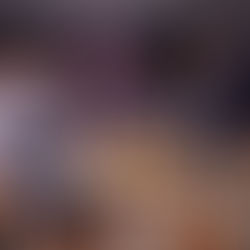Waiting For Godot

****
Send in the clowns
It would seem homegrown productions of Samuel Beckett's “Waiting for Godot” are destined to become the standard bearers. The Gate Theatre’s legendary production, featuring Stephen Brennan, Alan Stanford, Barry McGovern and the late, great Johnny Murphy, is still viewed by many as the definitive "Godot", seeming to have struck that perfect balance of charm, absurdity, comedy and humanity. Now Druid have come along and said, ‘we’ll have a go.’ Which they have, with a fresh, new take on Beckett’s absurdist, dark comedy that very quickly became one of the most talked about productions of 2016. A revival of which now makes a welcome addition to the Abbey Theatre’s list of excellent revivals being produced this year, affording those who missed it first time around an opportunity to see if it lives up to the hype as one of the all-time great productions of "Waiting For Godot".
When it comes to “Waiting for Godot” critical commentary may often hit the target, but it can very easily miss the mark while doing so. Even limiting it to what you know for sure - two vagrants, Vladimir and Estragon, somewhere in the middle of nowhere, next to a tree and a stone, waiting for the mysterious Godot to arrive - seems to say too much whilst not saying near enough. Add in the burdened slave, Lucky, his brutish master, Pozzo, its elements of slapstick, absurdism, theology and whatever else impresses itself upon you, and the waters only become more muddied. Meanwhile, events go around in repeating circles like a bad habit. The only way forward, it would seem, is to make some definite decisions, if you can, and see where they lead you. Which is exactly what director Garry Hynes has done, cracking open the rich vein of humour that runs throughout "Waiting for Godot,” yet trading something off in the process.

Under Hynes’s direction, Didi, Gogo, Pozzo and Lucky become the circus clowns their names suggest, with all the slapstick bells and whistles attached. Where other productions can seem embarrassed by Beckett’s lowbrow slapstick, Druid have embraced it. Throughout, Hynes foregrounds humour and a pratfalling physicality, referencing the circus, Vaudeville and the Musical Hall, Hal Roach and Max Sennett comedies, right up to the variety shows of the 1970’s. Pacing is directly affected as everything feels like it’s being set up for the punchline, with the audience, who function almost as another character, primed to always be expecting the next laugh, whether it’s from swapping hats, torturing a slave or arguing Christian theology. There’s only a faint sense of the tears of a clown, or of a broken Pagliacci hiding behind a smile. Indeed, comedy is as much a distraction for the audience as it is for the tramps, draining the darkness of its power and keeping it at bay. Efforts to unveil the darkness behind the humour are essentially compressed and condensed into the concluding moments, beginning with the blind Pozzo’s departure. With the transition feeling as if the lights suddenly went off, the dark arriving in a manner that it seems not quite sure what to do with itself, the end risks looking a little like it’s been tagged on. But if this is the cost, the reward is more laughter than you could shake a carrot at, making "Waiting For Godot" immediately accessible and extremely enjoyable. You may not agree or like it, but you cant deny they've done a terrific job.

Hynes is no shrinking violet, offering a strong, decisive “Waiting for Godot” via Beckett’s circus comedy clowns. Reductive or inspired, it’s certainly a credible and sustainable approach. Something which its stellar cast firmly commit to, to hilarious effect. Garrett Lombard as Lucky, and Rory Nolan as Pozzo, are both wonderfully realised, with Nolan’s gentrified and dangerous Pozzo being particularly impressive. As are Marty Rea as Vladimir, and Aaron Monaghan as Estragon, a comedic duo made in Beckett heaven. Rea is astonishingly good as the affected, Vladimir, displaying a pretentious, educated elegance constantly seeking superiority and distraction. The perfect foil to Monaghan’s tired, frustrated and memory failing, Estragon, whose comic timing and expressiveness are a sheer joy. Throughout, there’s something of “Last of the Summer Wine” with Rea’s, faux sophisticated Didi tormenting the lazy and less clever Gogo, as both idlers plot futile plans in classic television sitcom style. Indeed, Francis O’Connor’s excellent design, with its parched earth, withered tree and grey sky, all framed within a white rimmed light, reinforces this idea of the TV set, as well as referencing the vaudevillian proscenium.

For those who’ve been waiting for “Waiting for Godot,” the wait is finally over. Druid’s “Godot” has finally turned up on The Abbey stage. If it feels like a variety show or circus performance at times, which will please some, for others the balance will feel off, as if something is sacrificed to accommodate its heightened sense of music hall comedy. But what you get in return is a wonderfully accessible, laugh out loud “Waiting for Godot” which is well worth waiting for. Too much of a good thing or hitting the right vein, Druid’s “Waiting for Godot” might well divide opinion, but, then again, Beckett always does. But it will most certainly delight most die-hard fans, and undoubtedly win over a whole host of new ones. There’s nothing to be done but to enjoy it.
“Waiting for Godot” by Samuel Beckett, produced by Druid Theatre, directed by Garry Hynes, runs at The Abbey Theatre until May 20th
For more information, visit The Abbey Theatre or Druid Theatre
































